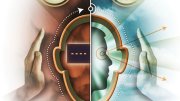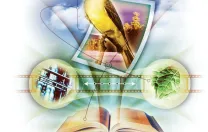Over the two decades that I have been teaching at Harvard I have been asked many questions about Islam, but I was ill prepared when, a couple of years ago, a student asked me over dinner at a restaurant in Harvard Square: “How can anyone who is rational and intelligent believe in and practice a religion that promotes violence, terror, [and] suicide bombings and is blatantly against fundamental human rights and freedom?”
Exacerbating the lack of knowledge about Islam and Muslim cultures in the United States is a widespread illiteracy about the nature of religion in general.
One of religious illiteracy’s common symptoms is the tendency to associate a religion solely with its devotional practices, such as rites, rituals, and religious festivals. Another is the propensity to attribute the actions of individuals, communities, and nations exclusively to religion. With regard to Islam, it results in the perception that the faith is chiefly responsible for all the actions of anyone who is a Muslim. It also leads to the assumption that everything that happens in a predominantly Muslim country can be attributed to religion. Thus many people commonly assume that Islam is the principal cause of a variety of ills that plague some Muslim majority countries, such as the lack of democracy, economic underdevelopment, unjust treatment and marginalization of women. To many Muslims, such explanations are as absurd as the claim that Christianity is responsible for the United States, a predominantly Christian nation, having one of the highest crime rates in the world. Illiteracy about religion and culture hinders the ability to look for complex and more plausible explanations rooted in political, economic, and sociological conditions. It also hampers people from realizing that, while religion may be invoked as a legitimizer for certain human actions, the primary motivating forces are often rooted elsewhere. Religious literacy helps students to recognize that all interpretations of religion are essentially human enterprises; the faithful may consider certain religious truths to be divinely revealed, but the meanings they construct from these truths are heavily dependent on their worldly circumstances and realities.
Ultimately, if unchecked, religious and cultural illiteracy strips peoples and nations of their history, their culture, their politics, their economics—in short, their humanity. History is full of examples of conflicts and tragedies that result from a group of people from one religious, racial, or ethnic background failing to accept and to respect the humanity of others. During times of heightened political and military conflicts, religious and cultural illiteracy strongly influences how peoples of different nations, cultures, and religions perceive each other.
Adapted from The Harvard Sampler: Liberal Education for the Twenty-First Century, edited by Jennifer M. Shephard, Stephen M. Kosslyn, and Evelynn M. Hammonds, to be published October 2011 by Harvard University Press. Copyright © 2011 by the President and Fellows of Harvard College. All rights reserved.
From “Enhancing Religious Literacy in a Liberal Arts Education through the Study of Islam and Muslim Societies,” by Ali S. Asani, professor of Indo-Muslim and Islamic religion and cultures and chair of the department of Near Eastern languages and civilizations. He teaches Culture and Belief 12, “For the Love of God and His Prophet: Religion, Culture, and the Arts in Muslim Societies,” and Culture and Belief 19, “Understanding Islam and Contemporary Muslim Societies,” and is the author of Infidel of Love: Exploring Muslim Understandings of Islam (forthcoming from Harvard University Press).







